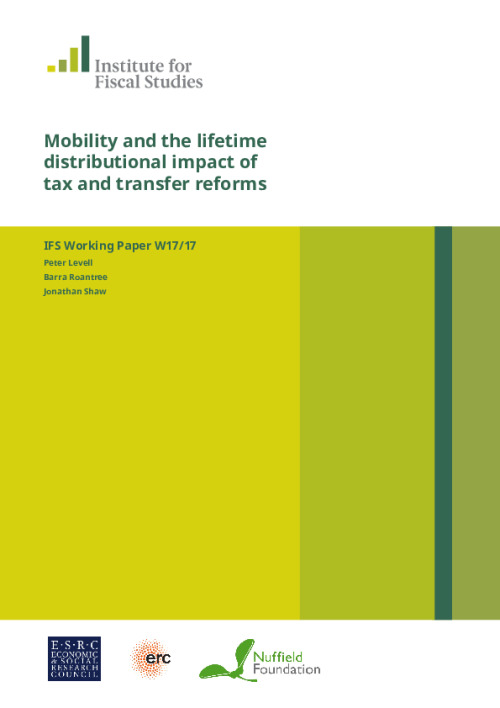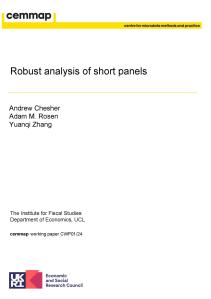Downloads

WP201717.pdf
PDF | 1 MB
This paper examines the distributional impact of increases to out-of-work transfers, increases to work-contingent transfers, and increases in higher rates of income tax over the whole of life. We find that, in contrast to what is implied by standard snapshot analyses, increases to work-contingent benefits are just as effective at redistributing resources to the lifetime poor as increases to out-of-work benefits. This has important implications for the equity-efficiency trade-off typically thought to apply to work-contingent transfers. However, we find that higher rates of tax on annually assessed income are an effective way of targeting the lifetime rich, as incomes are more persistent towards the top of the distribution. Our results illustrate the importance of moving beyond an exclusively snapshot perspective when analysing tax and transfer reforms.
This working paper is an updated version of W16/17.
Authors

Research Fellow Financial Conduct Authority
Jonathan is a Research Fellow at the IFS and a Technical Specialist in the Economics Department at the Financial Conduct Authority.

Associate Director
Peter joined in 2009. He has published several papers on the microeconomics of household spending and labour supply decisions over the life-cycle.

Research Fellow Trinity College Dublin
Barra is a Research Fellow at IFS and Assistant Professor of Economics at Trinity College Dublin.
Working Paper details
- DOI
- 10.1920/wp.ifs.2017.W1717
- Publisher
- The IFS
Suggested citation
P, Levell and B, Roantree and J, Shaw. (2017). Mobility and the lifetime distributional impact of tax and transfer reforms. London: The IFS. Available at: https://ifs.org.uk/publications/mobility-and-lifetime-distributional-impact-tax-and-transfer-reforms (accessed: 5 May 2024).
More from IFS
Understand this issue

Spring Budget 2024: What you need to know
7 March 2024

Spring Budget 2024: the Chancellor’s options

The £600 billion problem awaiting the next government
25 April 2024
Policy analysis

Spring Budget 2024
6 March 2024

Reforming the taxation of non-doms: policy options and uncertainties
4 March 2024

Oil and gas make Scotland’s underlying public finances particularly volatile and uncertain
27 March 2024
Academic research

Intertemporal income shifting and the taxation of business owner-managers
24 January 2024

Insurance, redistribution, and the inequality of lifetime income
2 November 2023

Robust analysis of short panels
8 January 2024